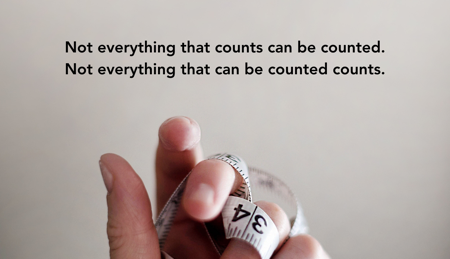In the modern digital era, the ability for marketers to measure the results of their work has increased exponentially. But this new power has brought with it many new pitfalls. What can marketing leaders do to avoid the downsides and unlock the benefits of increased measurability? Let’s take a moment to pause and reflect.
- Let’s start with the pitfalls. The first and most obvious one is the tendency to over-use digital channels because they are easy to measure. Even if they are not the best channels for the job.
- Since the rise of social media 10+ years ago, vanity metrics—measurements that sound impressive but aren’t really useful as signals—have been a persistent problem.
- Another persistent pitfall is the streetlight effect—the tendency to pay more attention to effects that are easy to track and report on. This issue is bigger than digital, but it’s exacerbated by the ease with which digital metrics can be accessed.
- Then there’s the McNamara fallacy. Named for former US Defence Secretary Robert McNamara, it refers to the danger of making decisions based purely on numbers. As attractive as they may be, numbers can only tell part of the story.
- This reminds us of a famous quote we love. It’s often attributed to Einstein but the more likely source is sociologist William Bruce Cameron. Whoever said it, we recommend printing it out and pasting it onto the wall above your desk.

- One further pitfall is short-termism. When you combine pressure to deliver results with instantly available metrics, the result is often an over-focus on near-term tactics—and a corresponding under-focus on long-term marketing pursuits such as brand building.
- Of course, not everyone is mad for metrics. Under-measurement is still a problem too. A recent marketing auditby the U.S. Army concluded that tens of millions of taxpayer dollars have been waste on ineffective marketing. The underlying cause: a lack of clear goals and “formal processes around data collection and measurement”.
- So what’s a marketer to do? Start by mastering the art of creating good KPIs that are specific to your context and business goals. Here are some useful tips.
- We also like this advice from Faris Yakob: “A broad basket of KPIs capturing long and short term effects is best. Additionally, there’s a large middle ground between immediate sales response and long term brand building that needs considering.”

